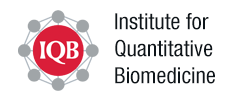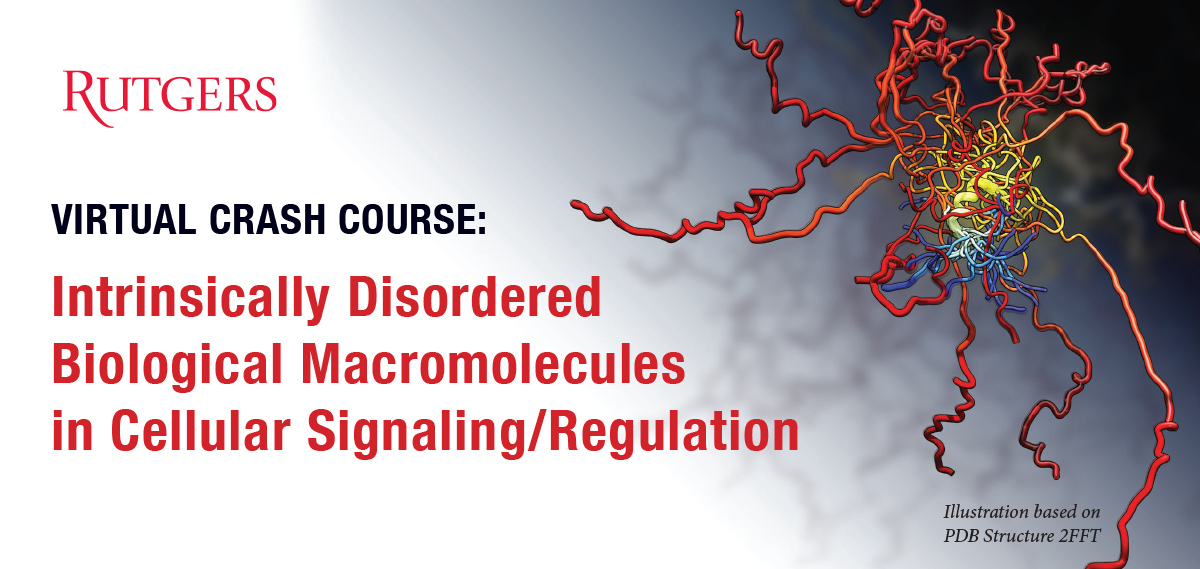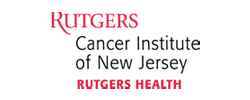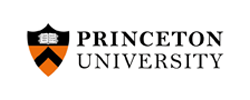Tuesday, April 19th 2022 • 1:00 PM EST
Registration (required): go.rutgers.edu/pc8prcsl
Program | Download Printable Program
| 1:00–1:05 pm | Welcome and Introductions Stephen K. Burley, M.D., D.Phil., Rutgers Institute for Quantitative Biomedicine Steven K. Libutti, M.D., F.A.C.S., Rutgers Cancer Institue of New Jersey | |
| 1:05–1:15 pm | Crash Course Objectives | |
| 1:15–1:45 PM | Understanding membrane-less organelles/condensates within living cells | |
| 1:45–2:15 pm | Theory of associative polymers and implications for biomolecular condensates | |
| 2:15–2:45 pm | How RNA encodes properties of condensates | |
2:45–3:15 pm | Break | |
| 3:15-3:45 pm | The conformational entropy of biopolymers in the dilute phase sculpts | |
3:45-4:15 pm | Building a molecular model of Ras/Raf signaling in the control of cell proliferation Carla Mattos, Ph.D., Northeastern University-Chemistry and Chemical Biology | |
4:15-4:45 pm | How is phase behavior encoded in prion-like low-complexity domains? Tanja Mittag, Ph.D., St. Jude Children’s Research Hospital-Structural Biology | |
4:45-5:00 pm | Closing remarks and acknowledgements Stephen K. Burley, M.D., D.Phil. | |
SPONSORS: | ||
 | |



